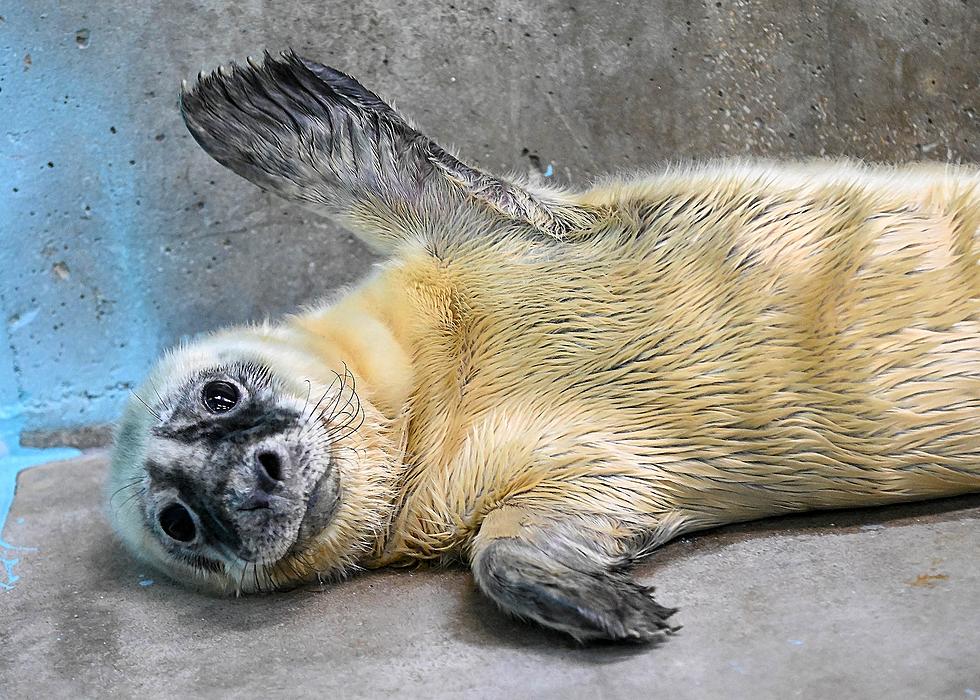
Heartwarming Story of Georgie, a Stranded, Blind Seal From Maine Who Was Saved and is Now a Mother
Get your tissues ready. This one hits hard if you love animals.
Georgie the seal was found in Georgetown, Maine, in 2013. She was stranded, fully blind in one eye, and functionally blind in her other eye.
"Due to her impaired vision, authorities with the National Marine Fisheries Service decided she could not be released back into the wild," according to a WBNS News article. "She arrived in 2020 at the Brookfield Zoo, west of downtown Chicago."
This seal, Georgie defied all odds.
She was stranded. She was more than 50% blind. But now, thanks to the rescue from Maine and the support from the Brookfield Zoo, she is also a mother, and a good one, too.
The 11-year-old seal named “Georgie” gave birth on Feb. 17 to a nearly 35-pound (15.9-kilogram) male pup at the Brookfield Zoo. He's gained 15 pounds (6.8 kilograms) in his first week on his mother's extremely rich milk, and has been practicing his swimming skills in a pool, zoo officials said.
Despite her impaired vision, Georgie is apparently “a very attentive mother,” said Mark Gonka, the zoo’s associate director of marine mammal care and conservation.
“Grey seals have a keen sense of smell as well as a repertoire of vocalizations. Georgie is able to locate her pup by his distinct smell and call," Gonka said, according to WBNS News.
This story warms every bit of my heart. For whatever reason, even though I am not blind nor stranded on an island in Maine, I felt the pain Georgie probably felt.
Perhaps the words may be helpless and hopeless.
But due to the efforts to rescue her in Maine, and the quality care for her in Chicago, Georgie is now able to raise her own baby and help the seal population grow.
The Brookfield Zoo said the newborn pup's birth from two parents of wild descent is helping to increase the genetic diversity of the grey seal population in accredited North American zoos and aquariums.Grey seals face threats that include entanglement in fishing gear, illegal hunting, chemical contaminants, and climate change, the zoo said.
2024 Concerts in Maine, New Hampshire, and Massachusetts
2023 Highest Paid State of Maine Employes
More From 97.5 WOKQ









